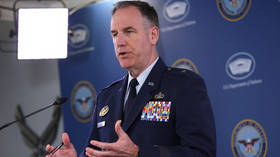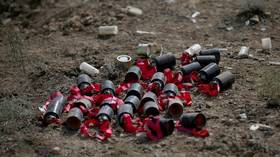Pentagon reveals which cluster munitions could be sent to Ukraine

If the US decides to provide Ukraine with cluster munitions, which are banned in more than 100 countries due to the threat they pose to civilians, it would opt for modern types of the weapon, a senior Pentagon official said on Thursday.
Speaking at a regular press briefing, Pentagon spokesman Pat Ryder said that while he had nothing to announce yet regarding deliveries of cluster munitions to Ukraine, he noted that the US has different types of the weapon in its arsenal.
“The ones that we are considering providing would not include older variants with dud rates that are higher than 2.35%,” he said, adding that the Pentagon “would be carefully selecting rounds with lower dud rates” for which it has recent testing data.
However, Ryder would not say whether the US had discussed concerns about the potential use of cluster munitions in Ukraine with its NATO allies, saying only that the bloc’s member states are united in their desire to provide Kiev “with the capabilities that they need to be effective on the battlefield.”
In recent weeks, several US media outlets have reported that the administration of US President Joe Biden is moving closer to greenlighting the delivery of the controversial ammunition to Ukraine. According to AP, Washington is expected to announce the delivery of thousands of cluster bombs on Friday as part of a new $800 million security assistance package.
Cluster munitions are banned in more than 100 countries because when they detonate, they release many small bomblets over a wide area, and these unexploded elements pose severe risks to civilians for years after fighting ends. The US has not joined the ban but has prohibited exports of this ammo with a ‘dud’ rate of more than 1%. However this restriction can be lifted by a presidential waiver.
In a statement on Thursday, Human Rights Watch warned the US against approving the shipment, saying cluster munitions “would inevitably cause long-term suffering for civilians” and undermine international criticism of the weapon.
In late March, Russian Deputy Foreign Minister Sergey Ryabkov also warned the US against the move, explaining that it could lead to an escalation of hostilities.













